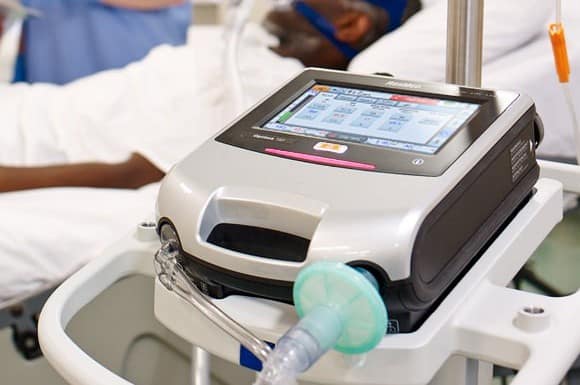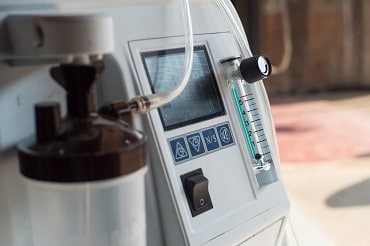
 A strong track record of acquisitions and an incoming sector tailwind are just a couple of attractive attributes of Protech Home Medical (Protech Home Medical Stock Quote, Chart, News, Analysts TSXV:PTQ), says Leede Jones Gable analyst Douglas Loe, who launched coverage of the stock on Monday with a “Buy” rating and $3.25 target price. Loe said Protech continues to trade at a steep discount to its peer group, one of which capital markets are likely to take notice in upcoming quarters.
A strong track record of acquisitions and an incoming sector tailwind are just a couple of attractive attributes of Protech Home Medical (Protech Home Medical Stock Quote, Chart, News, Analysts TSXV:PTQ), says Leede Jones Gable analyst Douglas Loe, who launched coverage of the stock on Monday with a “Buy” rating and $3.25 target price. Loe said Protech continues to trade at a steep discount to its peer group, one of which capital markets are likely to take notice in upcoming quarters.
Kentucky-based durable medical equipment and home healthcare services company Protech came out of a reconfiguration of legacy home healthcare company Patient Home Monitoring which had spun out home healthcare and respiratory care business VieMed Healthcare in 2017. Protech focuses on end-to-end respiratory care with an aim on expanding its offerings to chronic disease management for patients with heart or pulmonary disease, sleep disorders, reduced mobility and other chronic conditions.
Protech, which has a market cap of about $165 million, delivered a return of 62 per cent in 2019 and has gone higher in 2020, currently sitting up 48 per cent for the year.
Loe said the durable medical equipment sector (DME) is about to see a stabilization of reimbursement rates in the US, where in past years Protech has endured a number of changes to reimbursement policies by the US Centers for Medicare and Medicaid Services (CMS) including cuts to existing DME items, the result of which has been a thinning out of the field of competitors to PTQ, even as Protech generated plus-70-per-cent margins over the past two years, Loe said.
But the CMS’s competitive bidding program is settling down, according to Loe.
“An incoming tailwind is now set to stabilize PTQ’s margins further. Specifically, an October 2020 announcement will now see the cancellation of competitive bidding contracts across 13 product categories. Accordingly, our read is that reimbursement rates have essentially reached the floor and with minimal if not absent risk of further cuts in the foreseeable future, thereby providing stabilization in margins going forward,” Loe said.
Loe said Protech is also poised to continue its proven M&A strategy where it has been able to identify and integrate attractive acquisition targets in order to access new geographies. The analyst noted that at the company’s initial announcement as an independent, publicly-traded company in early 2018, management had identified up to 6,000 independent home healthcare services/equipment providers in the US midwestern and eastern geographies that could be willing to become part of Protech’s network.
“Though our model does not make overly aggressive projections on acquisitive revenue/EBITDA contribution in future years, we are optimistic that Protech can sustain its current pace of acquisitive growth throughout our forecast period, which would provide upside to our forecasts if EBITDA margin can be simultaneously sustained at a current steady-state level of 18-20 per cent, or perhaps exceeded,” Loe wrote.
Along with M&A, Loe pointed to the quickly emerging field of telehealth as an investment area for Protech, which he said has been looking to innovate in-house by providing telehealth training. This, Loe said, would give the company leeway to offer more comprehensive services compared to its peers while at the same time it could potentially accelerate PTQ’s patient on-boarding process and in turn reduce costs and the risk of improper equipment use.
“At present, PTQ shares are valued at 5.5x EV/F2021 EBITDA as compared to Canadian healthcare services peers at 9.8x and the firm’s direct peer group at 16.3x respectively,” Loe wrote. “We see no reason for Protech to be valued at a discount to its peers when considering its strong EBITDA/operating cash flow track record, and we expect capital markets to notice, eventually. We believe that Protech’s acquisition acumen and financial discipline (recent transactions, [the 2020 acquisitions of Health Technology Resources and Sleepwell], were valued at 1.0x-1.1x T12M sales) are well-documented in those two transactions alone,” Loe wrote.
Protech announced its third quarter fiscal 2020 results (for the period ended June 30, 2020) on August 17, showing revenue up 28 per cent year-over-year and up seven per cent quarter-on-quarter to $25.9 million and adjusted EBITDA up 47 per cent year-over-year to $5.5 million. Then, on November 30, the company released preliminary fourth quarter fiscal 2020 results, which projected revenue in the range of $26.1 million to $26.5 million and adjusted EBITDA within the range of $5.6 million to $6.1 million.
Looking at the preliminary Q4 report, Loe said the numbers imply EBITDA margins of between 21 and 23 per cent, which would mean sequential growth in absolute EBITDA of about two to three per cent, which would come despite pandemic headwinds, according to the analyst.
“While the firm denoted this as a recovery in the firm’s sleep business, we also see continued tailwinds from a demand in home care respiratory services from individuals recovering from COVID-19 and perhaps, incremental revenue contribution from the two aforementioned acquisitions,” Loe wrote.
Looking ahead, Loe is calling for full fiscal 2020 revenue and EBITDA of $98.9 million and $20.7 million, respectively, and fiscal 2021 revenue and EBITDA of $131.0 million and $30.5 million, respectively. At press time, Loe’s $3.25 target represented a projected one-year return of 121 per cent.
Leave a Reply
You must be logged in to post a comment.





 Share
Share Tweet
Tweet Share
Share




Comment